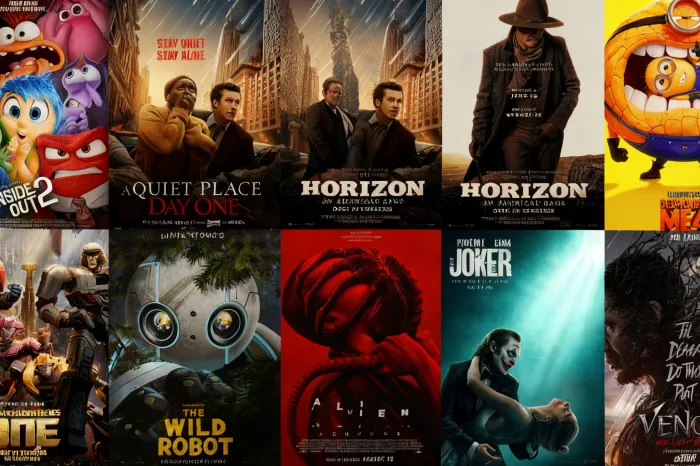# From Box Office Bust to Streaming Hit: How Movie Flops Find Second Lives Online
Every year, moviemakers roll the dice, investing enormous sums and huge efforts to create the next big hit. Sometimes, despite the marketing blitz and celebrity appearances, a film arrives at theaters with more anticipation than tickets sold, landing it squarely in the category of ‘box office flop.’ However, while the disappointment used to feel final, the age of streaming has thrown out the old rulebook. Increasingly, these underperformers are bouncing back with surprising vigor online, changing how success is defined in the movie business.
## That Opening Weekend Letdown: Anatomy of a Flop
Hollywood, Bollywood, and other film industries routinely take risks that don’t always pan out. When a much-hyped release disappoints theater audiences—think of big-budget titles like “Tron: Ares” or “The Lady Killer”—studios face grim profit forecasts and uncomfortable headlines. Reasons for these failures vary. Sometimes screenplays lack spark; sometimes misjudged marketing campaigns miss the mark. Audiences can be fickle too; a movie praised in early reviews may still falter if it’s not what viewers want. “Predator: Badlands,” for example, seemed poised for modest success with reasonable reviews and moderate expectations, yet couldn’t pull crowds.
What makes a flop? Traditionally, it’s all about ticket sales. If opening weekend brings in empty seats more than viewers, studios brace for losses. Yet the modern entertainment landscape doesn’t end there.
## Streaming Platforms: The Digital Lifeline for Failing Films
Streaming services have flipped the script. Where a poor box office run once spelled extinction, a new digital release can revive a movie—and sometimes, even transform its reputation. Netflix, Amazon Prime Video, Disney+, and free platforms like YouTube are perpetually hungry for content. Movies that faltered in theaters become valuable catalog items, snapped up through licensing agreements or released directly to global audiences.
Take “Mithra Mandali,” a Telugu comedy that fizzled in cinemas but gained real traction on Amazon Prime Video after its runtime was trimmed and the pacing improved. Suddenly, the misfire got a second wind among home viewers, proving that a theatrical flop can turn into streaming success with the right tweaks. Major productions also cash in; “The Lady Killer” drew millions of curious viewers when it hit YouTube for free—viewers who might never have bought a ticket, but were happy to stream with a click.
Licensing deals underpin much of this resurgence. Platforms negotiate with studios to secure movies at lower cost after they’ve underperformed, while offering royalties and ad share revenue. For instance, Netflix often acquires rights for global streaming, instantly turning once-localized flops into worldwide sensations. For studios, these deals can help recoup losses, while streaming platforms gain fresh content that keeps subscribers engaged.
Audience engagement on digital platforms is another twist. Unlike box office tallies, streaming sites track views, watch times, ratings, and social chatter. If a movie catches fire online—whether because it’s notoriously bad or oddly compelling—platforms may promote it further, pushing it onto trending lists or suggested watch pages. This cycle can keep a film relevant long after its theatrical window has closed.
## Cult Status and Online Fandom: Where Flops Shine
Sometimes, the shift from theater to streaming doesn’t just save a film; it sparks genuine fandom. “Blade Runner,” now celebrated for its vision and style, was dismissed as a commercial failure in its time. Over the years, however, repeated TV showings and home rentals gave it a chance to be re-evaluated. Now, it’s revered as a classic—a journey repeated by many films online today.
The internet has turned what could have been mere footnotes into cultural phenomena. Social media, meme culture, and discussion forums elevate certain flops, turning awkward dialogue, eccentric performances, or wild plot twists into shared inside jokes. Films like “Deliver Me from Nowhere,” though not blockbuster hits, find new audiences who appreciate subtle storytelling or unconventional themes, often fueling late-night debates and elaborate fan theories across Twitter, Reddit, and YouTube comment threads.
Streaming success can spill over to merchandising, fan conventions, soundtrack downloads, and even spin-off series. Audience loyalty grows with repeated viewing, and word-of-mouth spreads in ways that theaters could never replicate—sometimes making these late-bloomers more influential than their well-performing peers.
Other notable examples include “Scott Pilgrim vs. the World” and “Jennifer’s Body.” Both arrived in theaters to lukewarm financial returns, yet gained huge followings on streaming services. Their quirky style, offbeat humor, and meme-worthy moments became staples for internet communities, illustrating how cult status blossoms best outside conventional success metrics.
## The Business of Bouncing Back: Streaming Economics Explained
The economics of streaming redeems many flops. Digital platforms negotiate licensing fees based on potential viewership, genre appeal, and existing buzz, which enables studios to recoup some of their losses. Some platforms, especially paid services, negotiate exclusivity—offering a premium for the right to host a previously overlooked movie. Ad-supported platforms, meanwhile, can turn even notorious bombs into profit centers with every view, generating ad impressions and engagement metrics that translate directly to revenue.
Audience engagement further affects a movie’s longevity online. Platforms continuously analyze how often a film is watched, what viewers think, and whether they share or talk about it. If the numbers climb, algorithms may push the title to new groups of subscribers, effectively keeping it alive months—or even years—after its original launch. This steady pulse of activity is nearly impossible in the brief, high-pressure window of a theatrical release.
International audiences are another factor. What failed in one country sometimes becomes a hit elsewhere—streaming eliminates geographic boundaries, letting movies find fans in unexpected places. Producers increasingly look to cross-border licensing and translation deals, betting that what didn’t work at home could thrive abroad.
## Changing Mindsets: Redefining Flop in Today’s Movie World
A lackluster opening doesn’t mean the movie is done; in fact, it’s often just the beginning of a longer journey. Studios plan for digital releases, assess overseas potential, and consider product tie-ins that supplement direct ticket income. Streaming services offer safety nets that allow creative risks—giving experimental films the space to find their audience. Meanwhile, viewers themselves embrace streaming as a low-risk way to sample titles without paying theater prices or trusting the opinions of reviewers.
Box office tracking may still dominate headlines, charting opening weekend highs and lows, but the broader picture matters more than ever. The conversation about what defines a movie’s success is changing, with online buzz, reappraisals, and cult followings reshaping the landscape for filmmakers across the globe.
## Silver Linings: Flops in the Age of Streaming
Ultimately, while studios might lament poor theatrical numbers, the widespread reach of digital platforms offers a kind of redemption few could have predicted just a decade ago. Where once failure spelled the end, now it might only mark a new beginning. Flops now serve as lessons in creativity, marketing, and resilience, while audiences benefit from greater choice and the thrill of discovering hidden gems online.
So next time you’re scrolling through your favorite streaming service and come across a movie once written off by critics, consider giving it a try. Chances are, you’ll find something memorable—whether you love it, laugh at it, or join the growing ranks of fans twisting its flaws into virtues. In today’s world, flops don’t fade away—they evolve, ready for their digital encore.





























